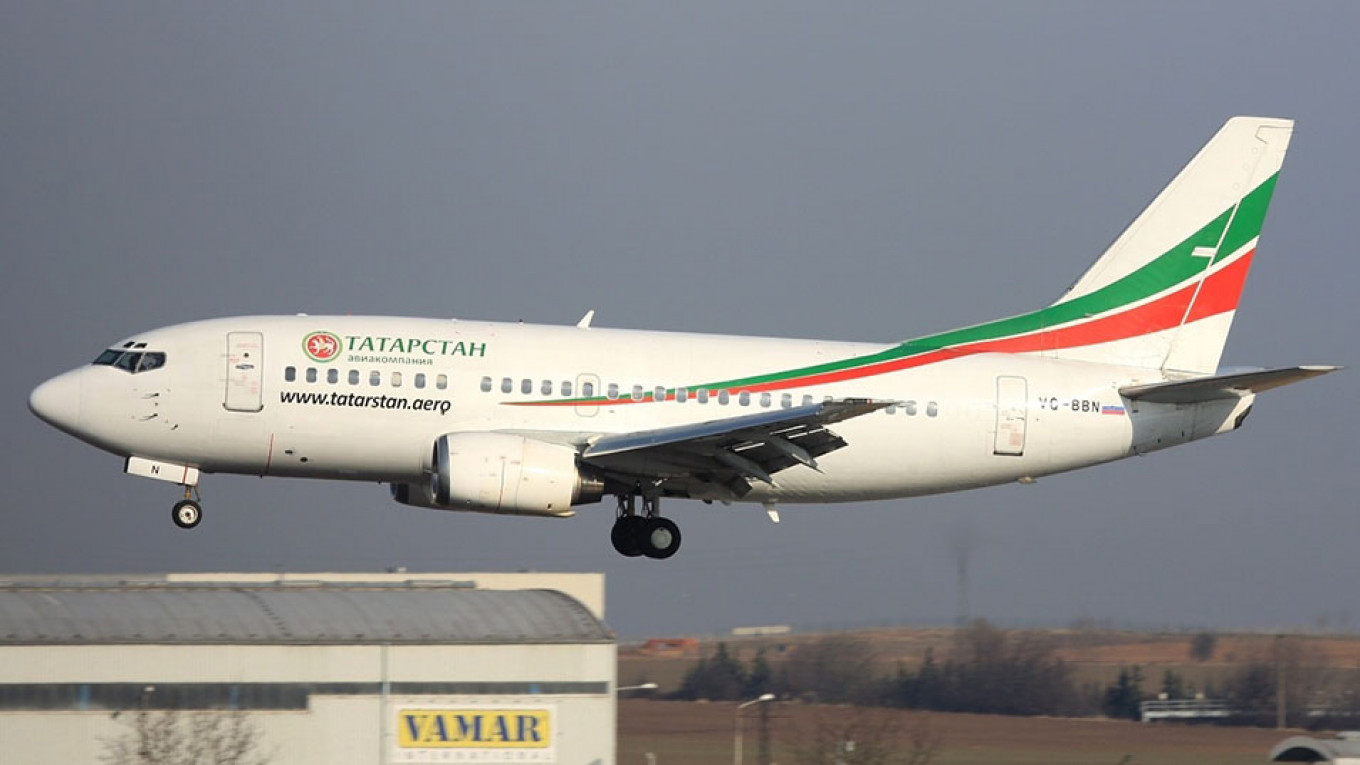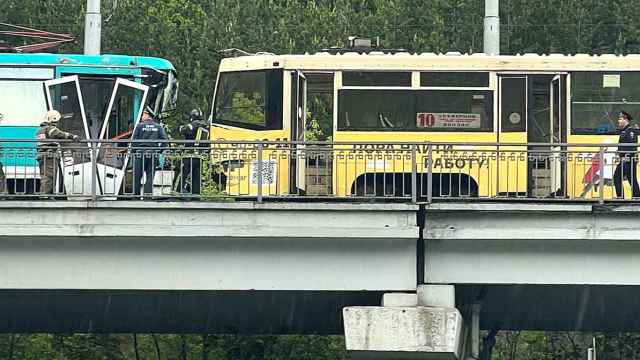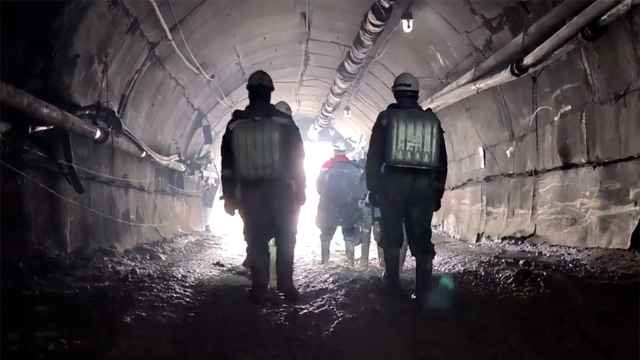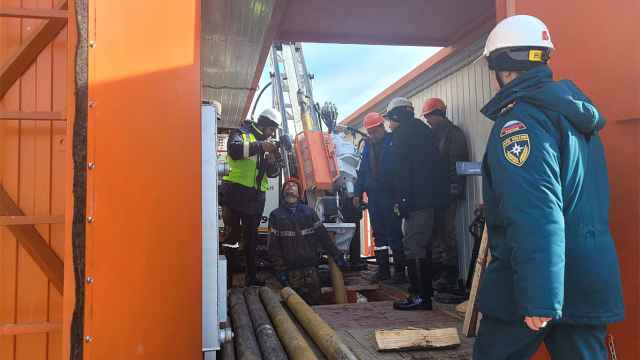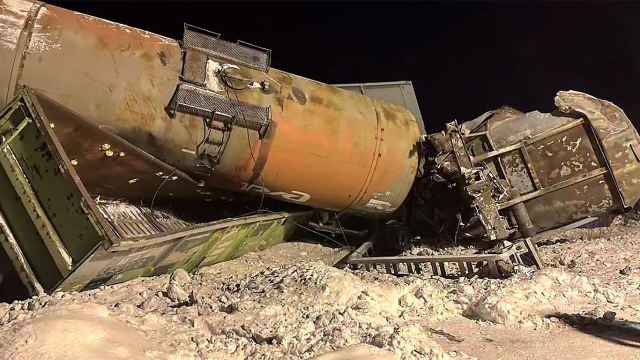A plane crash that killed all 50 people on board at Russia's Kazan Airport in 2013 was the result of errors made by two pilots, including one who got his license using falsified documents, Russian investigators said on Thursday.
The Boeing 737-500 aircraft was operated by the now-defunct Tatarstan Airlines, which later had its license revoked by Russia's Federal Air Transport Agency, Rosaviatsiya.
The plane from Moscow had been trying to abort its landing when it nose-dived into the runway and burst into flames. All 44 passengers and 6 crew members were killed.
The son of the president of the oil-rich province of Tatarstan and the regional head of the FSB intelligence service were among those killed. The dead also included two foreigners, a Briton and a Ukrainian.
Russia's Investigative Committee said in a statement on Thursday it had concluded its investigation into the crash and said that pilot error was to blame.
It said the aircraft's commander, Rustem Salikhov, did not have sufficient piloting skills and had made a series of errors as had his co-pilot Viktor Gutsul.
It said Salikhov had obtained his pilot's license using falsified documents.
"Salikhov, having no basic knowledge, skills and experience as a pilot, began to carry out passenger air flights as a pilot," it said.
The Investigative Committee said it had charged Valery Portnov, then-deputy general director of Tatarstan Airlines who it said had submitted Salikhov's documents containing false information in 2009.
It said he was being charged with violating air traffic safety rules resulting in the death of two or more people.
The then-regional head of Rosaviatsiya in Tatarstan, Shavkat Umarov, was charged with negligence. Kazan, which is 800 kilometers east of Moscow, is the capital of the mainly Muslim region of Tatarstan.
A Message from The Moscow Times:
Dear readers,
We are facing unprecedented challenges. Russia's Prosecutor General's Office has designated The Moscow Times as an "undesirable" organization, criminalizing our work and putting our staff at risk of prosecution. This follows our earlier unjust labeling as a "foreign agent."
These actions are direct attempts to silence independent journalism in Russia. The authorities claim our work "discredits the decisions of the Russian leadership." We see things differently: we strive to provide accurate, unbiased reporting on Russia.
We, the journalists of The Moscow Times, refuse to be silenced. But to continue our work, we need your help.
Your support, no matter how small, makes a world of difference. If you can, please support us monthly starting from just $2. It's quick to set up, and every contribution makes a significant impact.
By supporting The Moscow Times, you're defending open, independent journalism in the face of repression. Thank you for standing with us.
Remind me later.



